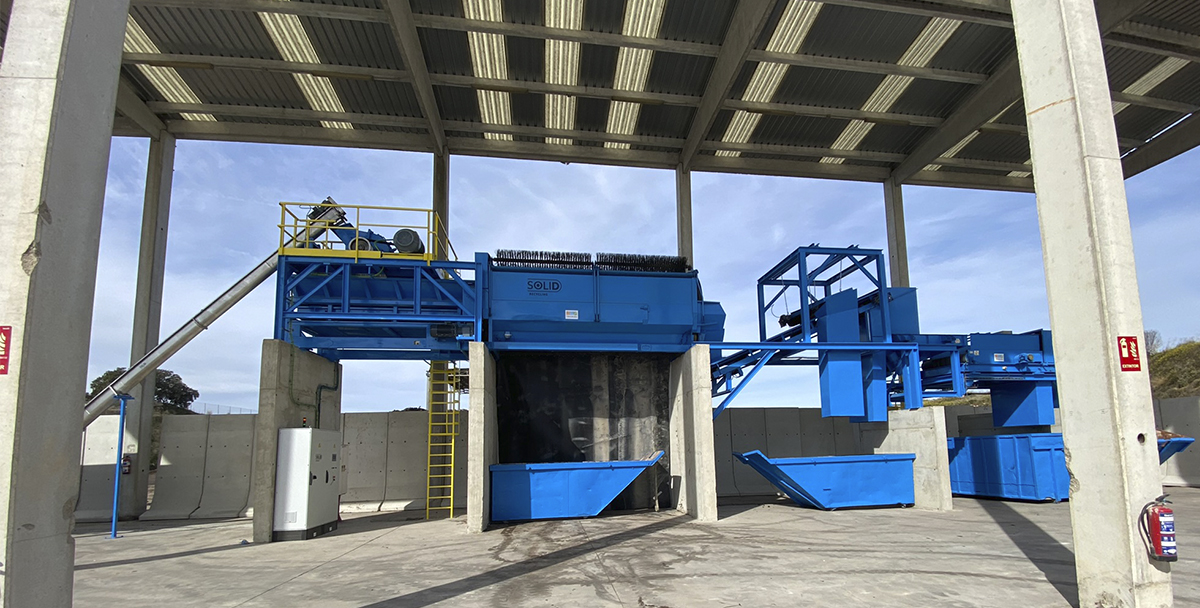
Creation date
Tradebe Valdilecha, our environmental centre in Madrid, has, since its start-up in April 2011, had different lines of waste management focused on prioritising waste recovery over disposal. The constant evolution of technologies, both in waste treatment and in the production of consumer goods, as well as of the waste itself, requires a permanent review and updating of the treatment processes.
For more than 10 years Tradebe has been leading the capsule recycling service in Spain, first exclusively with Nespresso®, now for the association of all coffee producers, Arecafé through the Círculo RECICAP®.
The Círculo RECICAP® is a non-profit organisation made up of 24 coffee manufacturers that was established with the aim of creating, developing and managing an ambitious collective system for the collection and recycling of used coffee capsules, based on the one created by NESCAFÉ® Dolce Gusto® and Nespresso® in 2010.
Being able to offer this service to this association has provided Tradebe with an unbeatable opportunity to update and improve the selectively collected waste treatment line at Tradebe Valdilecha.
What does the new capsule treatment line consist of?
This treatment line consists of a semi-automatic process of separation and classification of the different materials that make up the selectively collected waste fractions, such as coffee capsules. Its design and features allow efficient separation by type of material: granular, light, metal and dense.
This separation allows the recovery of all the materials present in the original waste in different ways.
What types of waste can we manage with this line?
The new design of this treatment line is very much geared towards the management of capsules from one of our main customers, AEcafé, although it can manage almost any type of waste in commercial format made up of multi-materials and with a maximum size of 80 mm.
Other waste from industrial processes can also be separated on this line, such as shredder waste, steelworks slag, or foundry soils that have been previously sorted to a size of less than 80 mm.
What are the phases of the capsule treatment process?
- Preliminary phase: The incoming waste must be sorted by "pre-shredding" to open the bags containing the capsules, followed by coarse sifting (80 mm) in which torn bags and other types of debris accompanying the capsules are removed.
- Feeding: The fraction obtained in the previous phase is deposited with the help of a loading shovel in a hopper with a closed "auger" feeding system, which prevents cross-contamination of the flow to be treated. From this stage onwards, the process is automatic and does not require the intervention of any operator, apart from the control and regulation tasks that may be required.
- Opening: The capsules are subjected to a process of opening by hitting, in which, depending on the flow rate, type and humidity of the capsules, the speed and impact of the opening system is adjusted.
- Coffee separation: At the exit of the opening system, a conveyor belt takes the capsules to a rotary sifting system where the coffee is separated from the rest of the flow. This coffee is then sent to the composting process that is already being carried out at Tradebe Valdilecha, together with other biodegradable waste.
- The resulting capsules, free of their contents, proceed to the final separation process in which a piece of inductive equipment separates the aluminium capsules from the plastic capsules.
Which parts are recovered?
The process defined at Tradebe Valdilecha for the treatment of capsules is capable of recovering 100% of the waste admitted, by integrating the recovered fractions in other existing processes at the plant or by referring them to external managers who will complete their final material recovery:
- RDF Refuse-Derived Fuel: The bags and other debris accompanying the capsules, which are removed in the previous phase, are sent to the refuse-derived fuels (RDF) production line, where they will be converted into solid alternative fuels after the appropriate processes.
- Compost: The coffee obtained by sifting is subjected to a separate composting process in which, after the corresponding refining, maturation and control of physico-chemical parameters, it will be converted into compost ready for application as an organic amendment in crops that require it (Valdi Compost®).
- Ferrous metals: Although their presence is in the minority, small fractions of these metals and their alloys are always found and independently collected for recovery.
- Plastics and aluminium: Finally, one of the most important fractions of the process is the recovery of the two main types of capsules present in this waste, plastic and aluminium. The segregation of both types of materials is the key to their reintroduction into the value chain of their corresponding raw materials.
Our ability to recover 100% of the waste admitted is a further demonstration of our professionalism and commitment to recycling, as well as one step further in our contribution to the circular economy model.
